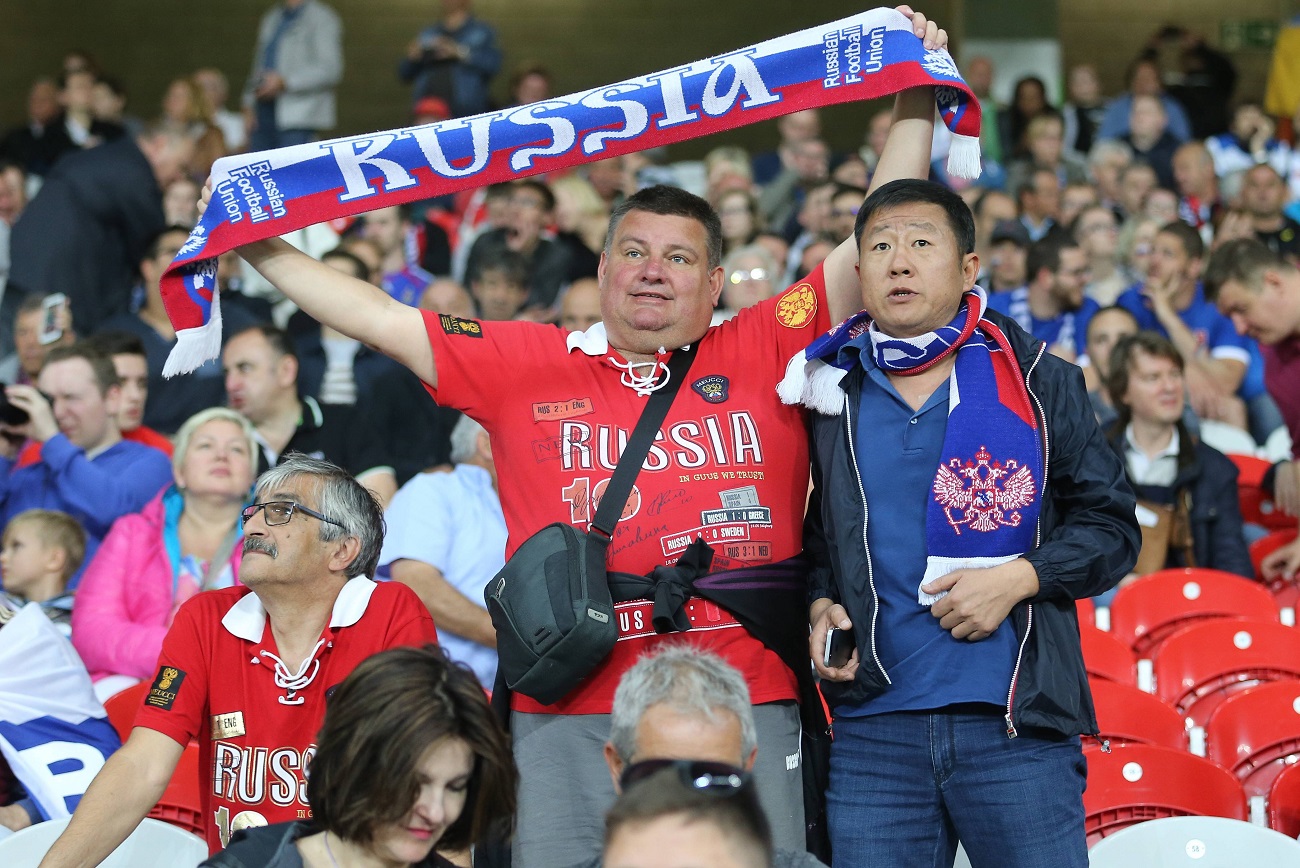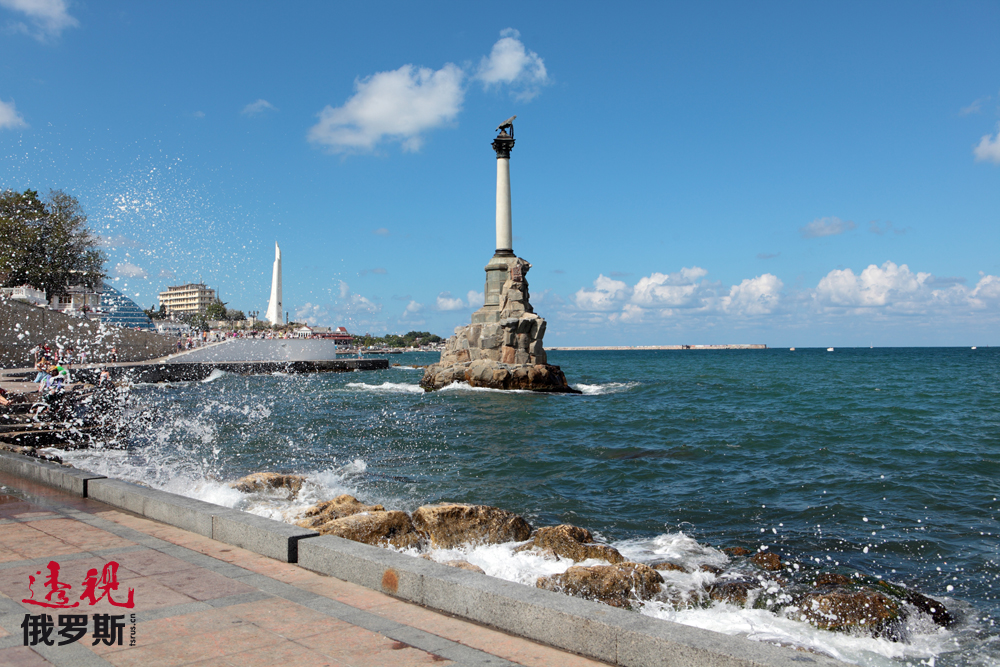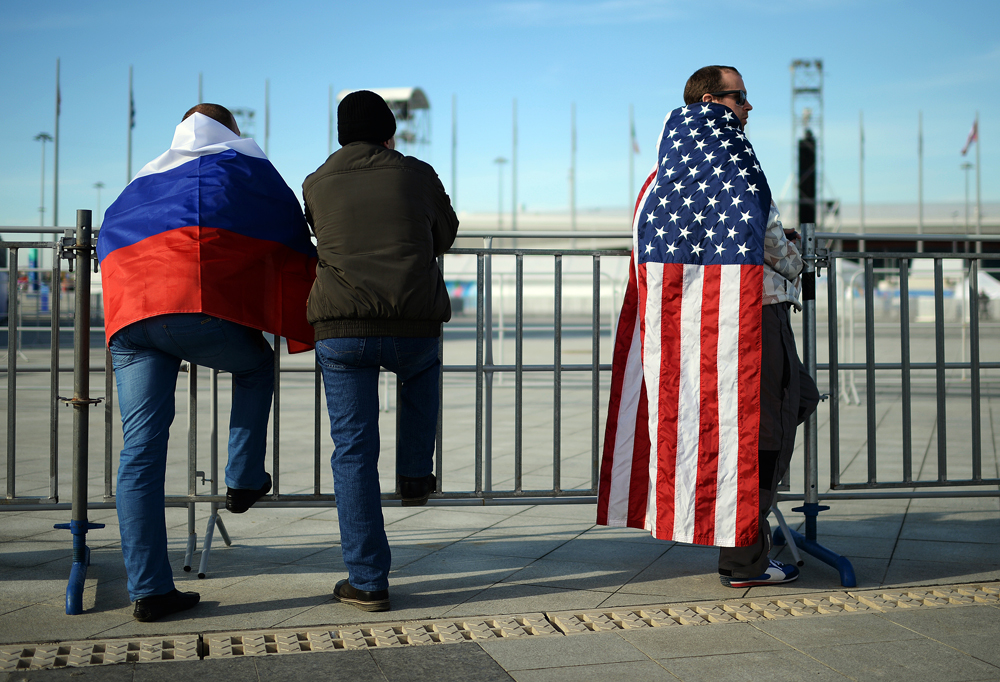Russians are intolerant of unpatriotic behavior - poll

Russian fans during the UEFA European Championship 2016 in France. Source: Global Look Press
Russians are highly intolerant of what they consider unpatriotic behavior, a poll conducted by the Russian Public Opinion Research Center (VCIOM) has revealed.
The poll reaffirms the sentiments that were expressed in a similar survey conducted in 2014, when the Sochi Olympics and Crimea’s reunification with Russia significantly added to the wave of patriotic fervor in the country.
According to the June 2017 poll, most Russians believe that a person cannot be considered a patriot if he or she does not feel a special love for Russia (77 percent), indulges in corruption (77 percent), avoids military service (69 percent), does not know the state symbols (62 percent), wants to emigrate (52 percent), or is a citizen of another country (61 percent).
The poll also revealed that a larger percentage of Russians (59 percent) believe that a person can have a point of view that is different from the one held by the state. In 2014, only 44 percent of respondents supported the right of a citizen to disagree with the state’s official position.
According to VCIOM expert Mikhail Mamonov, the results show that Russians feel that it is their patriotic duty to support state policies.
Meanwhile, tolerance for the freedom of choice is also rising, he added.
Mamonov’s opinion is supported by a poll conducted by the All-Russian Public Opinion Foundation in March 2017. According to the poll, 78 percent of Russians claim to be patriots.
While only 30 percent of respondents believe each Russian is obliged to be a patriot, 68 percent consider this a personal issue, underlining the belief in absolute freedom for a person in making this choice.
Patriotism as a national ideology
During the 20th century, the Russian state changed its national ideology several times. The Russian Revolution of 1917 and the creation of a socialist state terminated the concept of ‘Orthodoxy, Autocracy, and Nationality,’ which had formed the core of Russian society for centuries.
The ideology of communism and socialism gave Russians new ideals and aims, which dominated the society for 70 years, but could not survive the fall of the USSR.
An ideological vacuum was formed in the 1990s, and the state has been trying to fill it since then. In 2016, Russian President Vladimir Putin said patriotism was the country’s national ideology.
“We have no national ideology besides patriotism, and there can be no other,” he said at a meeting of the Leaders’ Club, a voluntary association of entrepreneurs from 40 of Russia’s regions.
Political expert Grigory Gerasimov wrote in 2016 that the proclamation of an ideology was not enough. The national ideology should depict an attractive vision of the future and become the principle on which the economy, society, inter-ethnic relations, and education are developed.
According to Gerasimov, patriotism could become the national ideology if it is realized not just in foreign policy and the promotion of traditional values, but also gives a clear view of the path of economic development.
Liberalism, which replaced communism, could not become Russia’s national ideology since it failed to create a strong economic system, the expert added.
Read more: The level of happiness in Russia reaches all-time high
If using any of Russia Beyond's content, partly or in full, always provide an active hyperlink to the original material.
Subscribe
to our newsletter!
Get the week's best stories straight to your inbox

